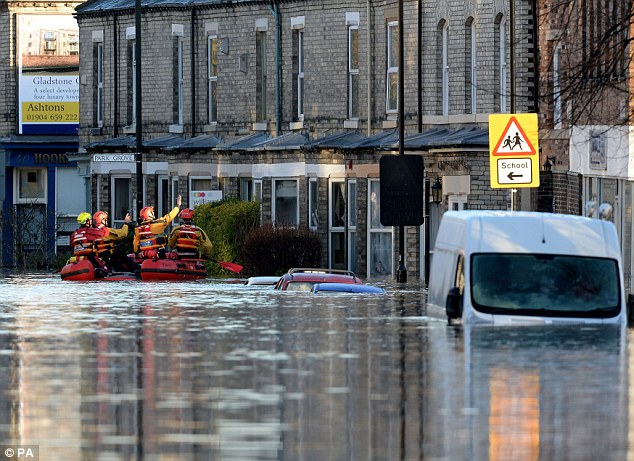
How climate change became to be forgotten
by Jac Dobbs
From the moment I was told about climate change at school, I was as engrossed as I was petrified. Being the dramatic 8-or-so-year-old that I was, my immediate reaction was “Oh my God, the world is going to end”. After seeing videos of the melting ice caps and stranded polar bears, and being told that we have some kind of a hole in something called an o-zone layer, I strived for change; I began to recycle, take showers instead of baths, and tried my hardest to convince my mum for us to walk instead of drive. But as I went through school, the craze about climate change fizzled out, and it was no longer drilled into us to ‘reduce, reuse, recycle’. With a few exceptions, such as GCSE geography, I hadn’t been involved in any discussions about climate change until my sociology lecture at the University of Manchester last week. To put it plainly: this baffles me. It makes no sense to me why climate change isn’t constantly pushed in our faces; in education, in the workplace, and in the media. Climate change is perhaps the biggest issue of our time, as acknowledged by the likes of some of the most intelligent and well-informed people on this planet such as Stephen Hawking (Atkin, 2016). It will take its toll, in one form or another, on every person on this planet, as well as all the animals and plants that we’re also dragging into our mess. By ‘our mess’ I am referring to the damage that has been caused by humans, as each of us undoubtedly involve ourselves in actions or activities that are bad for our planet (especially in the West), whether this is eating a burger or buying bottled water, and most of the time we are unaware of the damage we are causing or the ramifications of our actions.
Acknowledging that humans are the cause of the changes in the Earth’s climate and cycles, our current epoch has been labeled the Anthropocene. Arguably, the Anthropocene started with the Industrial Revolution in around 1750 but significantly increased in the 1950s, which was marked as the ‘>great acceleration’. This recognises that earth is now a ‘human planet’. However, there are different theories as to who is most to blame. The theory I relate to most is the ‘Treadmill of Production’ (Schnaiberg, 1980). This was first proposed by Allen Schnaiberg in 1980. Its main framework suggests that it is production and not consumption which has caused climate change. Schnaiberg believes that fundamentally it is producers who are in the driving seat, and consumers make decisions based on supply, for example, due to advertising. Schnailberg explains, along with Gould and Pellow, that ‘‘[…]Individuals, communities, states, and corporations consume only the outputs of a given production technology[…]” (2008, p.20). Henry Ford very much echoed this idea when he stated that ‘Any customer can have a car painted any colour that he wants, so long as it is black’, explaining that consumers have no power and they have to take what they’re given.
My belief that production is to blame for climate change also leads me to believe that it is the producers, or the capitalists, which are making sure climate change is ‘swept under the rug’. The wealth distribution of this planet is arguably becoming clearer, with Oxfam recently publishing statistics claiming that the richest eight people on the planet hold the same amount of wealth as the poorest 50% of the population (Elliott, 2017). With transnational, conglomerate corporations now the norm, it is hardly surprising that this is the situation that we are in. It is these eight, along with others like them, that I believe to be the producers, as it is these who own the capital and the means of production (the bourgeoisie, if we are using Marx’ terminology). In my eyes, it is these who hold the power; it is these who control the media (for example, >Rupert Murdoch, who the shadow culture secretary, Tom Watson, has recently requested be investigated by Ofcom, claiming that Murdoch’s desired Sky takeover would ‘threaten media plurality’ [Mason, 2017]); it is these who allow the masses to remain ignorant even with all of the information we now have; it is these who coincidentally financially back the governments that we elect to create policies around education and CO2 emissions and the like; it is these who deny the existence of climate change (Donald Trump tweeted in 2012 that ‘the concept of global warming was created by and for the Chinese in order to make U.S. manufacturing non-competitive’. This makes it an unsurprising discovery when Forbes announced that Trump has shares in oil and gas companies, such as Shell and Phillips 66 [Wang, 2016]); it is these who make sure that climate change is forgotten.
References
Atkin, A. (2016). : The Media Is Ignoring The Most Important Part Of Stephen Hawking’s Comments On Trump. 31 May 2016.
Elliott, L. (2017) ‘World’s eight richest people have same wealth as poorest 50%’, The Guardian. 16 January
Gould, K., Pellow, D., Schnaiberg, A. (2008) The Treadmill of Production: Injustice and Unsustainability in the Global. Paradigm Publishers.
Mason, R. (2017) ‘Ofcom must investigate Murdoch’s Sky takeover bid, says Tom Watson’, The Guardian. 6 March
Schnaiberg, A. (1980). The Environment: From Surplus to Scarcity. Oxford University Press. Trump, D (2012). ‘Donald J. Trump’, Twitter, 6 November.
Wang, J. (2016). Trump’s Stock Portfolio: Big Oil, Big Banks and More Foreign Connections. 29 November 2016.

0 Comments